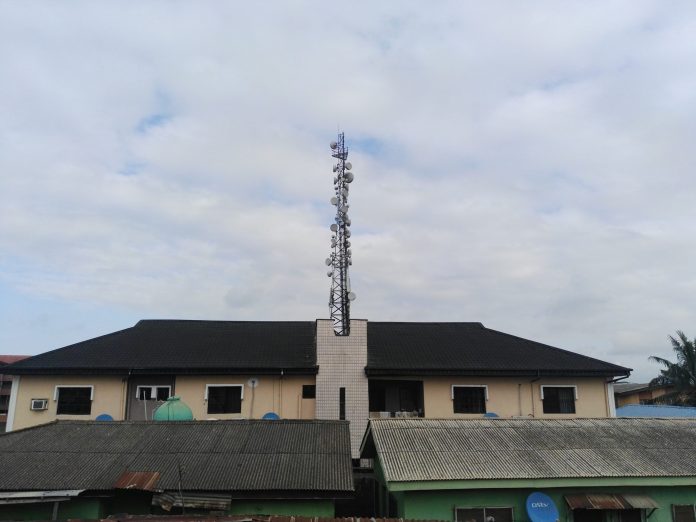As interconnectivity and mobility of Nigerian telecommunication subscribers increase daily, with over hundreds of million active mobile subscribers presently, there has been a need to have Robust Guidelines on National Roaming and also and Infrastructure Sharing. The apex regulatory agency, Nigerian Communication Commission (NCC) in its proactive manner has presented to the industry stakeholders such as Mobile Number Operators and other telecommunication firm on what is applicable.
National roaming is agreement between operators to extend coverage or can be imposed or facilitated by Federal Government as a means to encourage and increase competition amongst networks. In line with the powers conferred upon it (NCC) by Section 70 of the Nigerian Communications Act, 2003 and other enabling powers in that regard, the Commission to prescribe a regulatory framework for the implementation of National Roaming services in Nigeria. These are to be in conjunction with the Act, the Collocation Guidelines, Interconnection Regulations, Quality of Service Regulations, Competition Practices Regulations, other subsidiary legislations that may be issued by the Commission from time to time, and relevant License Conditions.”
NCC said that National roaming services shall commence within 90 days from receipt of the Roaming Request. The Roaming Provider shall within 10 working days of receipt of the Roaming Request notify the Roaming Seeker and the Commission of its refusal by completing the relevant section of the Response to Roaming Request Form B contained under Schedule 1 of these Guidelines and furnish supporting evidence therewith. Speaking on the national roaming, the regulator said that “The charges, terms and conditions for National Roaming services shall be through bilateral negotiations and in line with the provisions of these Guidelines.
in drafting agreement, factors that must be taken into cognizance are; Guidelines on Collocation and Infrastructure Sharing, Spectrum Trading Guidelines. Mobile Number Portability Business Rules & Port Order Processes; and any other regulations or guidelines published by the Commission from time to time that have provisions relating to or impacting on national roaming.

The Commission did not frown also on several agreement between operators. The document posted on the website of NCC states that ” Multiple National Roaming Agreements can be signed with different operators in the same or different clusters. Notwithstanding the above, the allowable number of Roaming partners on a Visited Network shall be determined by capacity and clusters. National Roaming services shall be provided under non-discriminatory terms, conditions and of a quality no less favorable than that provided by the Roaming Provider for its services or for services by its subsidiaries and other affiliates. Meeting the minimum network roll-out obligation as spelt out in a Service Provider’s License Condition is a pre-condition for entering into a National Roaming Agreement.”
On the issue of resolution of disputes, the Commission encourages the harmonious resolution of disputes, but if that fails, either party may refer the matter to the Commission for resolution, in line with the provisions of Sections 75 and 76 of the Act and the Dispute Resolution Guidelines. The decision of the Commission in this regard shall be final and binding on parties until set aside by a court of competent jurisdiction.
Still on intervention on conflict and its resolution, the Commission shall intervene within 30 days from date of receipt of the request for intervention and then prescribe the terms and conditions including national roaming charges. The Commission shall exercise its authority to intervene and regulate rates or tariffs whenever rates or tariffs are prohibitive and subscribers will be adversely affected. National roaming services shall not exceed 3 years from date of execution of the National Roaming Agreement. Though NCC stated that they reserve the right to permit parties to renew the National Roaming Agreement for another 3 years.
On Roaming Connection and billing between parties, the recommended Roaming connection and interworking for different technology such as 2G, 3G, 4G or whichever one the parties might may adopt other connection modes based on bilateral agreement. The format for billing and Call Data Record (CDR) verification shall be configured, tested and signed off on or before the commencement of Roaming. The Commission recommend 3GPP format. Though, the Home Network shall, as much as possible, support existing models for charging such as prepaid/postpaid, on-net/off-net, MO/MT, per volume/time for data, in addition to pre-agreed terms with Roaming partner and verified tests.

Notifications shall be configured and tested before the commencement of Roaming services. Notifications such as Roaming Attachment, Extra charge while roaming. Roaming charge for originating calls where Roamer pays. Restriction message, if any; and any other notifications as may be deemed relevant to the Roaming service.
Anthony Nwosu
For information on the National roaming agreements visit here
On Roaming Connection and billing between parties, the recommended Roaming connection and interworking for different technology such as 2G, 3G, 4G or whichever one the parties might may adopt other connection modes based on bilateral agreement.




